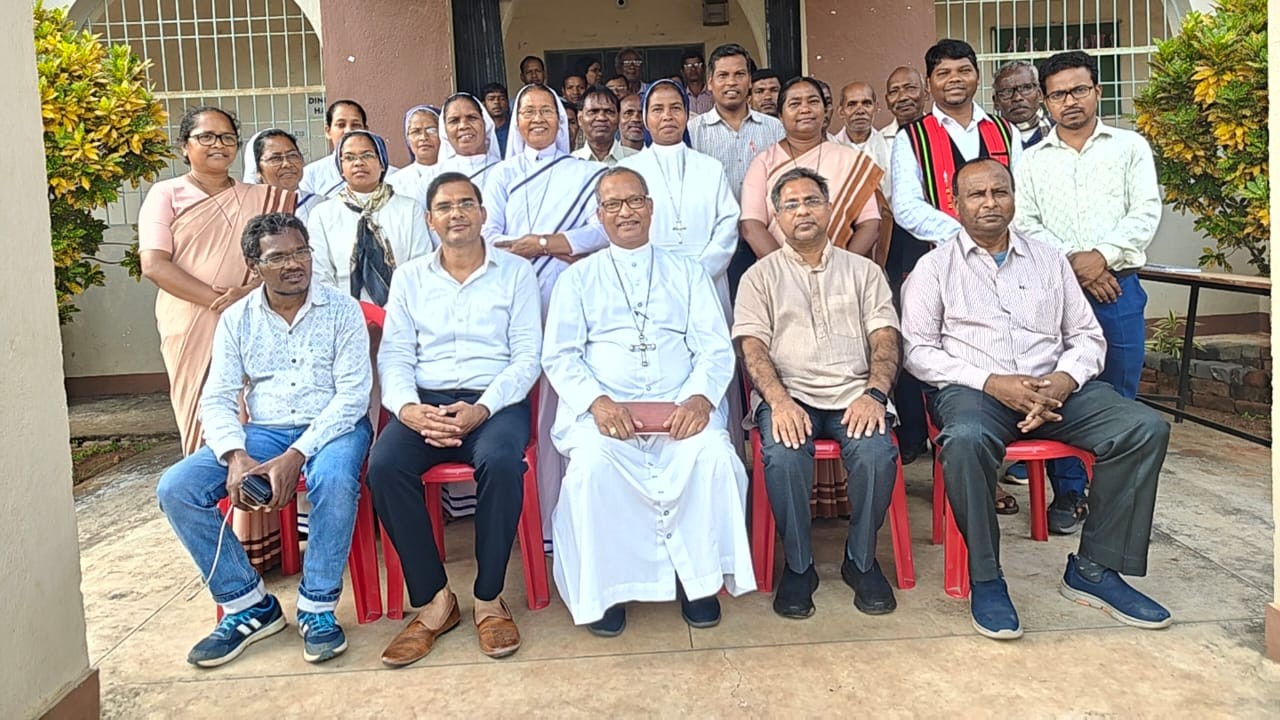Report on Faith-Based Legal Education and Sustainable Development Goals
Introduction and Overview
This report analyzes the role of Catholic law schools in forming legal professionals dedicated to advancing the United Nations Sustainable Development Goals (SDGs). Based on insights from Daniel B. Kelly, Dean of the University of St. Thomas School of Law, it is evident that these institutions frame the legal profession as a vocation rooted in moral reasoning and service to the common good. This approach directly supports the global agenda for sustainable development by preparing graduates to address systemic issues of justice, inequality, and human dignity.
While varying in size and location, Catholic law schools share a common objective: to educate the whole person and prepare students to serve society. This mission is intrinsically linked to the principles underpinning the SDGs.
Alignment with Key Sustainable Development Goals
-
SDG 16: Peace, Justice and Strong Institutions
The primary focus on justice and moral reasoning in legal practice is a direct contribution to the objectives of SDG 16.
- The educational model promotes the formation of lawyers who view their profession as a vocation to serve the common good, thereby strengthening the integrity and ethical foundation of legal institutions.
- By emphasizing the pursuit of justice, these schools equip graduates to build more effective, accountable, and inclusive institutions at all levels.
-
SDG 10: Reduced Inequalities
The principle of inherent human dignity is central to the curriculum and ethos, directly addressing the core tenets of SDG 10.
- As articulated by Dean Kelly, the educational philosophy asserts that a person’s worth is not dependent on extrinsic factors such as salary, power, or promotions.
- This perspective fosters a legal practice aimed at protecting the vulnerable and ensuring that every individual, regardless of their background, is treated with dignity, thereby working to reduce inequalities within and among countries.
- Graduates are formed to recognize that every client and person encountered possesses intrinsic dignity, a foundational concept for creating equitable legal outcomes.
-
SDG 4: Quality Education
The commitment to educating the whole person aligns with the holistic and values-based targets of SDG 4.
- The educational approach extends beyond technical legal training to include faith-based opportunities and a focus on community and supportive faculty.
- This model supports SDG Target 4.7, which aims to ensure that all learners acquire the knowledge and skills needed to promote sustainable development, including the promotion of a culture of peace, human rights, and appreciation of cultural diversity.
1. SDGs Addressed in the Article
-
SDG 4: Quality Education
The article directly addresses the quality and nature of education provided by Catholic law schools. It focuses on their specific mission to provide a “faith-informed approach” that goes beyond technical legal training to “educate the whole person.” The discussion centers on an educational philosophy that instills values such as moral reasoning, human dignity, and service, which relates to the quality and purpose of the education offered.
-
SDG 16: Peace, Justice and Strong Institutions
The core theme of the article is the role of these law schools in forming lawyers dedicated to the “pursuit of justice.” By preparing students to view law as a “vocation to serve the common good,” these institutions are directly contributing to the goal of building a more just society and strengthening the legal institutions that uphold the rule of law.
2. Specific Targets Identified
-
Target 4.7: Education for sustainable development and global citizenship
This target aims to ensure that all learners acquire knowledge and skills needed to promote sustainable development, including human rights and the promotion of a culture of peace. The article highlights that these schools form graduates by cherishing “human dignity” and recognizing “law as a vocation to serve the common good.” This educational focus on justice and moral reasoning directly equips students with the values and skills to promote a more just and peaceful society.
-
Target 16.3: Promote the rule of law and ensure equal access to justice
This target focuses on promoting the rule of law and ensuring justice for all. The article describes how Catholic law schools are forming lawyers who are committed to the “pursuit of justice.” By instilling a strong ethical foundation and a sense of vocation in their students, these institutions are helping to build a legal profession that is better equipped to uphold the rule of law and work towards ensuring access to justice.
3. Indicators Mentioned or Implied
-
Implied Indicator for Target 4.7:
The article states that the “American Bar Association… recognizes 29 Catholic law schools.” The number of higher education institutions that explicitly integrate education for justice, human rights, and the common good into their core mission can be considered an implied indicator. The existence and recognition of these 29 schools suggest a framework for delivering this type of value-based education.
-
Implied Indicator for Target 16.3:
The article describes the outcome of the education provided, which is the formation of lawyers who view their profession as a “vocation rooted in faith, moral reasoning and the pursuit of justice.” While not a quantitative number, the number of graduates from programs with a specific focus on justice and serving the common good is an implied qualitative indicator of progress towards strengthening the justice system with ethically-minded professionals.
4. Summary Table: SDGs, Targets, and Indicators
| SDGs | Targets | Indicators |
|---|---|---|
| SDG 4: Quality Education | Target 4.7: Ensure that all learners acquire the knowledge and skills needed to promote sustainable development, including human rights and a culture of peace. | The number of educational institutions that have integrated principles of justice, human dignity, and the common good into their mission (e.g., the 29 Catholic law schools mentioned in the article). |
| SDG 16: Peace, Justice and Strong Institutions | Target 16.3: Promote the rule of law at the national and international levels and ensure equal access to justice for all. | The number of law graduates educated with a specific focus on law as a “vocation to serve the common good” and the “pursuit of justice.” |
Source: news.stthomas.edu







